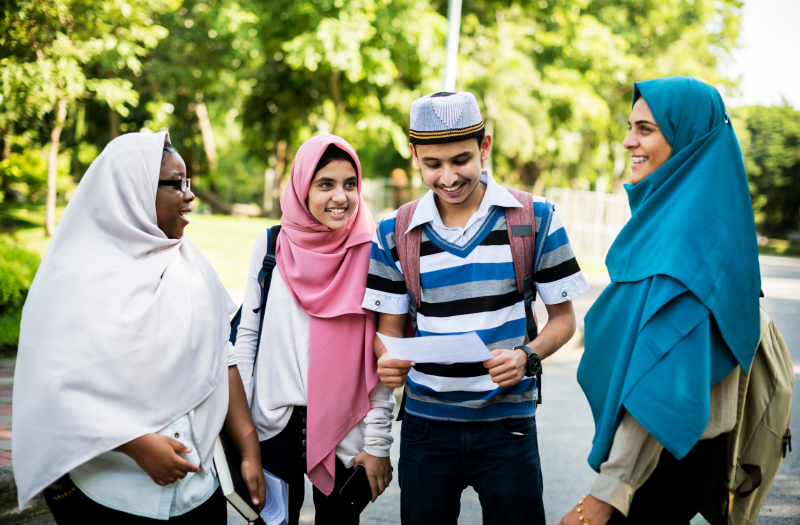Evaluation of the Taqaddam Programme
Evaluation of the Taqaddam Programme
Taqaddam was launched in 2015 and has reached over 9,000 students, teachers and schools.
Whilst education reforms in the Middle East and North Africa have led to considerable improvements in basic education, there is wide consensus that formal systems are sometimes not delivering the ‘softer’ outcomes needed to advance individual and social cohesion, nor preparing young people for contemporary realities and increasingly competitive labour market requirements. Taqaddam pioneers a holistic vision of education, providing young people with the opportunity and agency to develop life skills, lead more resilient and productive lives and exercise more control over decisions affecting them. The focus of our evaluation was to assess how Taqaddam has benefited students, identify evidence of outcomes and good practice to generate wider interest from policymakers and practitioners, and provide clear recommendations to inform adaptation and scale-up of the programme.
The evaluation was carried out from March to September 2019. We first reviewed evidence across Bahrain, Egypt, Kuwait, Qatar, the United Arab Emirates, Oman, Morocco, Jordan and Lebanon. Three countries were then selected for a more detailed analysis through field visits, including interviews and focus groups with students, teachers, parents and government officials. We employed an outcome harvesting approach to gather first-hand evidence of what had changed for respondents and how specific programme activities or external factors contributed to this. The methodology was shaped by three core principles – being participatory, youth-led and open-ended.
We found that Taqaddam’s inception coincided with significant changes impacting the Arab region, including the restructuring of economic and work prospects and the reorganisation of social life within the conditions of a global technological revolution. These changes continue to profoundly affect MENA youth, who face the highest unemployment rates in the world. According to respondents, current education systems focus more on memorisation and lecturing at the expense of digital skills and creativity. Taqaddam is responding to a unique window of opportunity, providing innovative skills while addressing the social and personal frustrations faced by young people and providing them with an anchor to rely on as they navigate their transition into adulthood.
We also found that Taqaddam has had a positive impact on young people’s self-awareness, lifting them out of periods of self-doubt and isolation and equipping them with healthier coping mechanisms to persevere during challenging times. Taqaddam also built student’s critical thinking skills, encouraging them to consider problems outside of their own contexts and how they can contribute as global citizens. Several young people demonstrated a heightened sense of social responsibility through developing creative solutions to environmental and social issues.
Despite not being a direct objective of the programme, Taqaddam navigated complex gender dynamics and in some contexts brought boys and girls together in a learning environment for the first time. As male and female students immersed themselves in competitive activities, they noticed an improvement in the dynamic and effectiveness of group work and began to let go of harmful stereotypes. This was noted as particularly important in contexts where girls feel they cannot speak up, or are confined to more reserved roles within society and the work force.
There are also concrete examples of how Taqaddam has influenced policy and practice in the region. Teachers benefited from exposure to innovative pedagogies, professional advancement opportunities and enhanced relationships with students. Taqaddam curricula has been embedded into formal systems by the Ministries of Education in Qatar and Kuwait, thereby extending impact and enhancing ownership.
The evaluation presented a series of recommendations to strengthen the innovation, credibility and sustainability of Taqaddam. These include optimising the programme’s digital component to ensure a fully integrated blended learning component, engaging local facilitators in the co-creation and tailoring of content to ensure linguistic and cultural translation, reinforcing the student ambassador model to ensure a peer-to-peer dynamic, and ensuring an elective recruitment strategy where possible to increase long-term motivation and engagement.

29 May 2020
3 minute read
Key Experts
Amy Dwyer
Senior Research Manager



